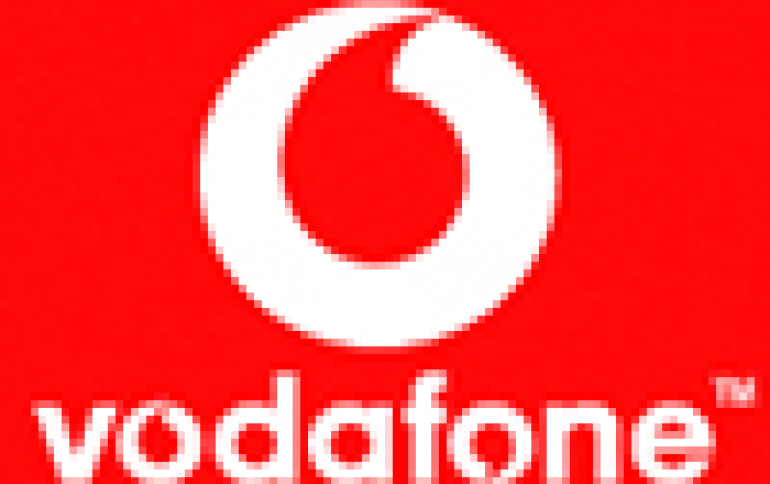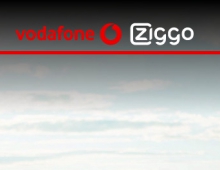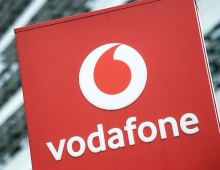
UK's Vodafone launches mass-market 3G mobile
After a four-year wait, billions of pounds spent on licences and numerous delays, Vodafone finally rolled out mass-market third-generation (3G) mobile telephone services on Wednesday.
Vodafone live! with 3G will be available in 12 European countries and Japan. The range of 10 new 3G handsets will offer services including video calling, full track music download, 3D games and mobile television.
The phones will have faster download speeds and improved quality of sound and images, with a two mega pixel camera and stereo speakers.
Handsets will be supplied by Sharp, Motorola, Sony Ericsson, NEC, Nokia and Samsung.
Vodafone said it was targeting over 10 million 3G customers by March 2006 across the group.
The introduction marks the full global launch of 3G services for Vodafone, whose previous limited 3G offerings have seen it lag some competitors.
Hutchison 3G was the first company to launch the new services in Europe in March 2003 but has had a chequered start.
In July French operator Orange launched 3G data card services for laptop computers in Britain and plans to introduce the new handsets later this year, while British rival mmO2 hopes to launch 3G in the first quarter of 2005.
In Japan, where Vodafone is the third-largest mobile operator, the British group has been losing customers as it struggles to catch up with competitors NTT DoCoMo and KDDI Corp. in bringing in 3G services.
Vodafone spent billions of dollars on acquiring 3G licences across Europe and in Japan in 2000, but as it pushed the launch date of high-speed services further and further into the future, investors started to question whether it would ever recoup its massive investment.
At the height of the dotcom boom, the group spent roughly £17-million on acquiring 3G spectrum across Europe, and chief executive Arun Sarin told reporters that Vodafone had spent some seven billion pounds in Britain alone.
"We're confident that it's been a good investment," he said.
In an earlier statement Sarin described the launch as "the start of a new era in mobile communications".
The roll-out follows the successful launch of the Vodafone Mobile Connect 3G datacard and initial 3G consumer services across eight European markets.
Vodafone had announced in September that the new handsets would be available in shops in Europe and Japan in time for the crucial Christmas period.
The 3G services will be available in Austria, France, Germany, Greece, Ireland, Italy, Japan, the Netherlands, Portugal, Spain, Sweden, Switzerland and Britain.
In France the Vodafone 3G services are being offered through SFR, in which Vodafone owns 43.9 percent, in partnership with main shareholder Vivendi Universal.
Vodafone's basic 3G package offers 500 voice minutes, 100 text messages and 50 video calling minutes, as well as unlimited film, news and sport video clips, for £40 per month. For £60 per month, subscribers can add on a further 500 minutes.
Songs cost £1.50 to download, almost twice the 79 pence that Apple Computer's leading iTunes services charges.
In addition to the premium that Vodafone is charging, the initial uptake of the music service could be hobbled by the group's relatively small library. Vodafone will have just 3000 songs (from MTV, Warner Music and Sony BMG) on offer, compared to 700 000 for iTunes.
The phones will have faster download speeds and improved quality of sound and images, with a two mega pixel camera and stereo speakers.
Handsets will be supplied by Sharp, Motorola, Sony Ericsson, NEC, Nokia and Samsung.
Vodafone said it was targeting over 10 million 3G customers by March 2006 across the group.
The introduction marks the full global launch of 3G services for Vodafone, whose previous limited 3G offerings have seen it lag some competitors.
Hutchison 3G was the first company to launch the new services in Europe in March 2003 but has had a chequered start.
In July French operator Orange launched 3G data card services for laptop computers in Britain and plans to introduce the new handsets later this year, while British rival mmO2 hopes to launch 3G in the first quarter of 2005.
In Japan, where Vodafone is the third-largest mobile operator, the British group has been losing customers as it struggles to catch up with competitors NTT DoCoMo and KDDI Corp. in bringing in 3G services.
Vodafone spent billions of dollars on acquiring 3G licences across Europe and in Japan in 2000, but as it pushed the launch date of high-speed services further and further into the future, investors started to question whether it would ever recoup its massive investment.
At the height of the dotcom boom, the group spent roughly £17-million on acquiring 3G spectrum across Europe, and chief executive Arun Sarin told reporters that Vodafone had spent some seven billion pounds in Britain alone.
"We're confident that it's been a good investment," he said.
In an earlier statement Sarin described the launch as "the start of a new era in mobile communications".
The roll-out follows the successful launch of the Vodafone Mobile Connect 3G datacard and initial 3G consumer services across eight European markets.
Vodafone had announced in September that the new handsets would be available in shops in Europe and Japan in time for the crucial Christmas period.
The 3G services will be available in Austria, France, Germany, Greece, Ireland, Italy, Japan, the Netherlands, Portugal, Spain, Sweden, Switzerland and Britain.
In France the Vodafone 3G services are being offered through SFR, in which Vodafone owns 43.9 percent, in partnership with main shareholder Vivendi Universal.
Vodafone's basic 3G package offers 500 voice minutes, 100 text messages and 50 video calling minutes, as well as unlimited film, news and sport video clips, for £40 per month. For £60 per month, subscribers can add on a further 500 minutes.
Songs cost £1.50 to download, almost twice the 79 pence that Apple Computer's leading iTunes services charges.
In addition to the premium that Vodafone is charging, the initial uptake of the music service could be hobbled by the group's relatively small library. Vodafone will have just 3000 songs (from MTV, Warner Music and Sony BMG) on offer, compared to 700 000 for iTunes.





















